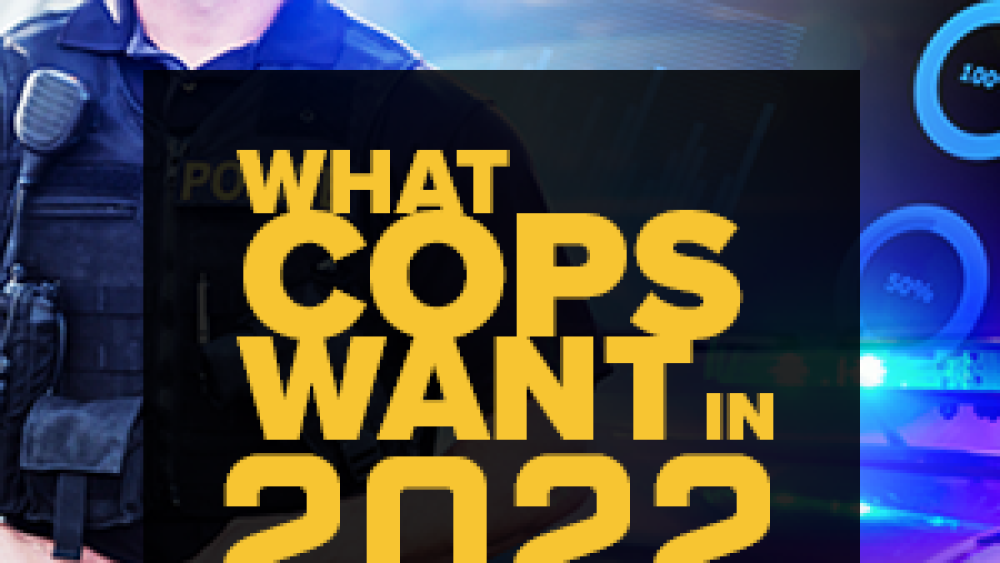This article originally appeared in the March 2022 Police1 Leadership Briefing. To read the full briefing, see What cops want in 2022 | Women in LE | Listen to your beat cops, and add the Leadership Briefing to your subscriptions.
In the management section of bookstores, there are volumes about leadership. Most of those authors urge that leaders communicate with their teams.
Collaboration is key. Listening is key. Feedback is key.
In practice, leaders who share their thoughts and genuinely exercise humility and trust in their teams are a rare breed. The ideal process of collaborating is time-consuming and takes work. But are leaders willing to hear from the cops on the beat?
Police1 recently explored this question as part of the second annual State of the Industry survey that asked, “What do cops want from their leadership?” The short answer: agency, defined by Webster in this context as “the capacity, condition, or state of acting or of exerting power.”
The value of feeling valued
Police officers need to feel valued by their supervisors and leaders. Police1’s survey showed that most officers believed that their needs play second fiddle to mollifying the public when their leaders speak to the media, only roughly half believe they are supported when leaders speak to the press.
When asked if their agency asks officers for input on policy updates, less than 5% of respondents strongly agreed and only 18% agreed. Some quick rounding math tells us that policies affecting the work of police officers are developed and imposed without the input of 75% of officers. Half of respondents stated that they have never been asked for feedback on policy, training, or personnel issues.
Is it any wonder that so many law enforcement officers feel distant from their leadership and cynical about police executives’ decisions?
The importance of feedback
While two-thirds of officers would want to meet with supervisors at least monthly or more frequently and about two-thirds have had one-to-one meetings in the month prior to taking the survey, supervisors could improve in the areas of providing regular constructive feedback on officers’ performance according to 45% of respondents.
Approximating responses to the survey leads to an average of slightly more than 50% positive answers to questions like whether officers receive recognition from supervisors, helping learn from mistakes, sharing important information and valuing input.
Supervisors get generally high marks when officers take the initiative to offer suggestions and conveying problems, weighing in at 75%-80%. What this reveals is that of the three communication paths of telling, listening and asking, the major deficit is leadership’s willingness to take the initiative to seek out input from officers. They want and need to be asked for feedback on the issues.
Only half of the respondents could state that they knew how their performance was measured by their agency, and only 39% felt that their department supports officers with mental health issues.
Digital Edition: What support do cops want from police leadership?
Download this in-depth analysis of Police1's State of the Industry survey on the support officers need from their supervisors and leaders to perform at their peak
This exclusive report will change the way law enforcement leaders lead
Communicating about critical issues
When it comes to police reform an abysmal 16% of survey respondents said that leadership regularly communicates with them about this issue. The significance of this absence of dialog should not be underestimated.
Other survey questions indicate that 65% of officers report that verbal abuse from bystanders has increased, 50% say that their community does not know what they do, fewer than half say their leadership effectively educates their community, and only 54% say that their leadership actively advocates for more resources for officer safety. Officers’ identity and future are at stake, especially since only 10% say they would encourage someone to become a police officer, and 80% do not see a bright future for the profession.
Commanders must be collaborative
Police officers are not collaborative in most of their daily work. They order, they gather only the most essential facts and they rely on coercion when resisted. They make unilateral decisions that carry the force of law. They may work in teams but with a designated leader who is to be obeyed. As they move up the ranks, those command skills tend to remain as the template for decision-making.
The collaborative process, in contrast, involves selecting persons who will be affected by the matter being considered with the predetermined intention of valuing their input. An accurate question must be framed, ideally developed through its own collaborative process, to focus the discussion. This involves more than telling and more than listening, it must include asking and respecting the responses.
Tell, listen, ask
What can supervisors, leaders and executives do in response to these perceptions? All three skills – telling, listening and asking – have room for improvement. Leaders may get their feelings hurt by hearing that officers don’t feel valued, but remember that surveys about feelings and opinions are all about perception. If the chief, sergeant, or lieutenant is doing their darndest to advocate for and defend their officers but that isn’t appreciated, it is a sign that the communication triad of tell, listen, ask has some gaps. Based on the survey, the major gap is failing to take the initiative to ask and engage. An open-door policy is good, but walking out of that door is better.




